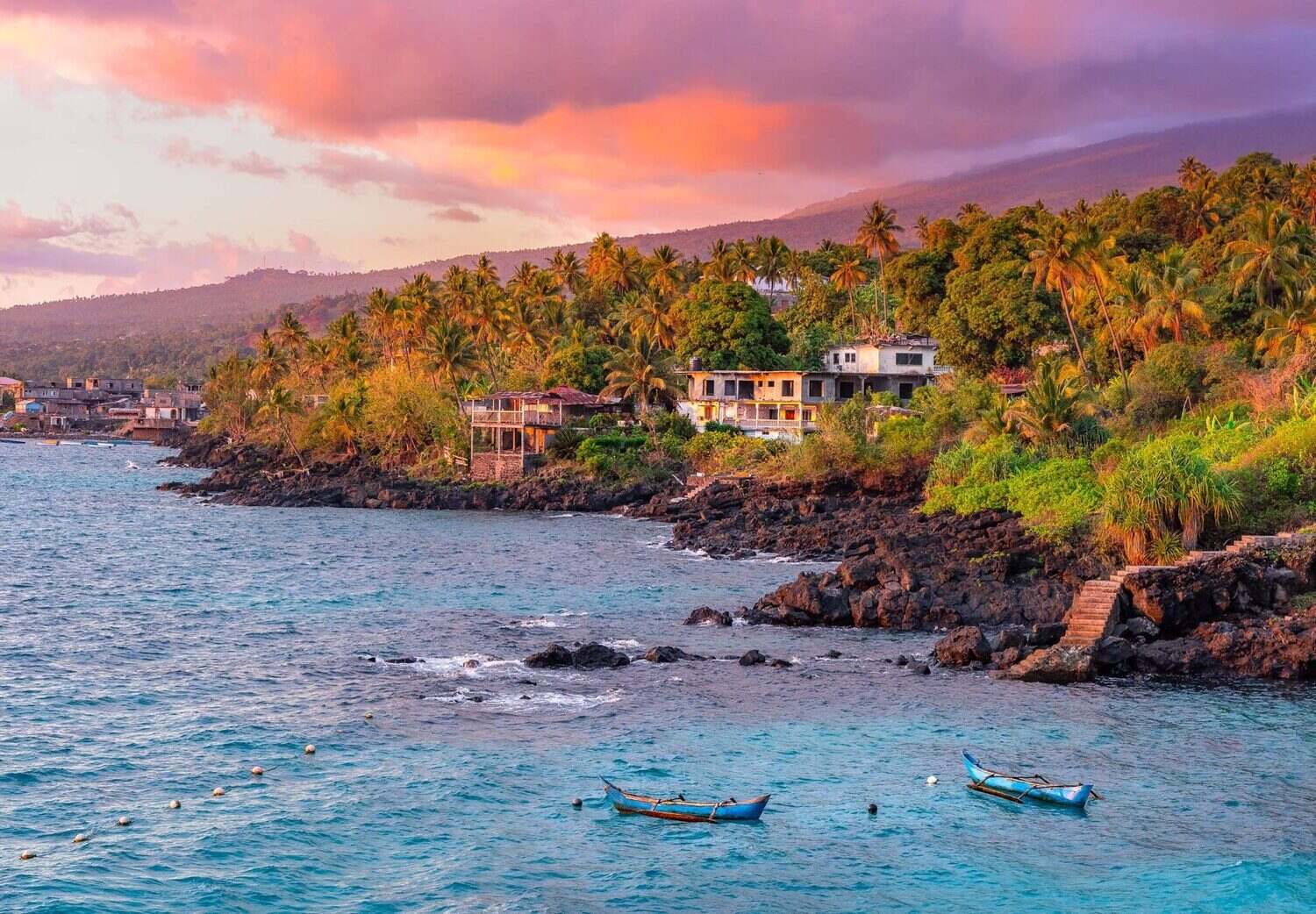
Where is Comoros located? Comoros, a small island nation, sits in the Indian Ocean between Madagascar and the coast of Mozambique in southeastern Africa. This archipelago consists of three main islands: Grande Comore, Mohéli, and Anjouan. Known for its stunning beaches, lush landscapes, and rich cultural heritage, Comoros offers a unique blend of African, Arab, and French influences. Despite its beauty, the country remains one of the least visited in the world, making it a hidden gem for adventurous travelers. Whether you're interested in exploring volcanic landscapes, diving in crystal-clear waters, or experiencing vibrant local traditions, Comoros has something special to offer.
Key Takeaways:
- Comoros, an island nation in the Indian Ocean, is known for its unique culture, stunning natural beauty, and valuable exports like vanilla and cloves. It faces challenges but also has potential for renewable energy and tourism growth.
- With three main islands, diverse languages, and rich biodiversity, Comoros offers a blend of African, Arab, and French traditions. Its potential for renewable energy and tourism presents opportunities for economic growth.
Where is Comoros?
Comoros, an island nation in the Indian Ocean, lies between Madagascar and the coast of Mozambique. This archipelago consists of three main islands and numerous smaller ones.
-
Comoros is made up of three main islands: Grande Comore, Mohéli, and Anjouan. Each island has its unique charm and culture.
-
The capital city is Moroni: Located on Grande Comore, Moroni is the largest city and the political, economic, and cultural hub of the nation.
Language and Culture
Comoros boasts a rich cultural heritage influenced by African, Arab, and French traditions. The island's diverse history is reflected in its languages and customs.
-
Three official languages: Comorian, Arabic, and French are the official languages. Comorian, a blend of Swahili and Arabic, is the most widely spoken.
-
Islam is the predominant religion: Nearly 99% of the population practices Sunni Islam, shaping the island's cultural and social norms.
Unique Biodiversity
Comoros is home to a variety of unique flora and fauna, some of which are found nowhere else on Earth. The islands' isolation has allowed many species to evolve independently.
-
Endemic species: The Comoros Islands host several endemic species, including the Livingstone's fruit bat and the Comoros blue pigeon.
-
Marine biodiversity: The surrounding waters are teeming with marine life, including vibrant coral reefs, dolphins, and sea turtles.
Economy and Agriculture
The economy of Comoros relies heavily on agriculture, fishing, and remittances from Comorians living abroad. The islands produce several valuable crops.
-
Vanilla production: Comoros is one of the world's leading producers of vanilla, a key export crop.
-
Clove and ylang-ylang: These aromatic plants are also significant exports, used in perfumes and flavorings.
Historical Tidbits
Comoros has a fascinating history, marked by the influence of various cultures and colonial powers. The islands have seen many changes over the centuries.
-
Arab traders: Arab traders arrived in Comoros as early as the 10th century, bringing Islam and establishing trade routes.
-
French colonization: In the 19th century, Comoros became a French colony, gaining independence in 1975.
Natural Wonders
The islands of Comoros are known for their stunning natural beauty, from volcanic landscapes to pristine beaches. These natural attractions draw visitors from around the world.
-
Mount Karthala: This active volcano on Grande Comore is one of the largest in the world, offering breathtaking views and challenging hikes.
-
Moheli Marine Park: A protected area that showcases the islands' rich marine life, perfect for snorkeling and diving enthusiasts.
Challenges and Opportunities
Like many small island nations, Comoros faces several challenges, including economic development and environmental sustainability. However, there are also opportunities for growth and progress.
-
High poverty rates: Despite its natural beauty and resources, Comoros struggles with high poverty rates and limited infrastructure.
-
Renewable energy potential: The islands have significant potential for renewable energy development, particularly solar and wind power.
-
Tourism growth: With its unique culture and natural attractions, Comoros has the potential to develop a thriving tourism industry, providing much-needed economic opportunities.
Final Thoughts on Comoros
Comoros, a small island nation in the Indian Ocean, packs a punch with its rich culture, unique biodiversity, and fascinating history. From its volcanic landscapes to the diverse marine life, there's always something new to learn about this hidden gem. The islands' blend of African, Arab, and French influences creates a vibrant cultural tapestry that's hard to find elsewhere. Despite its challenges, Comoros remains a place of beauty and intrigue. Whether you're interested in its rare species, historical sites, or cultural festivals, Comoros offers a wealth of experiences. So next time you're thinking about an off-the-beaten-path destination, consider the wonders of Comoros. You'll find a place that's not just beautiful but also full of stories waiting to be told.
Frequently Asked Questions
Was this page helpful?
Our commitment to delivering trustworthy and engaging content is at the heart of what we do. Each fact on our site is contributed by real users like you, bringing a wealth of diverse insights and information. To ensure the highest standards of accuracy and reliability, our dedicated editors meticulously review each submission. This process guarantees that the facts we share are not only fascinating but also credible. Trust in our commitment to quality and authenticity as you explore and learn with us.


